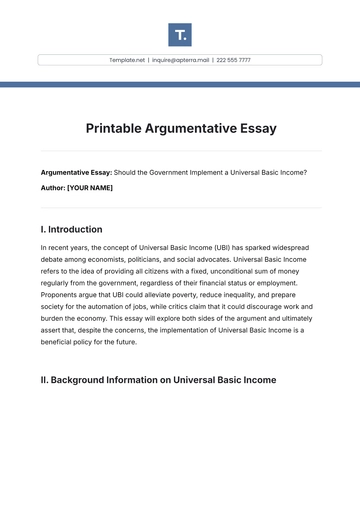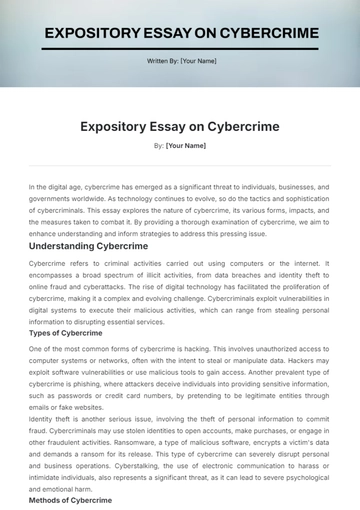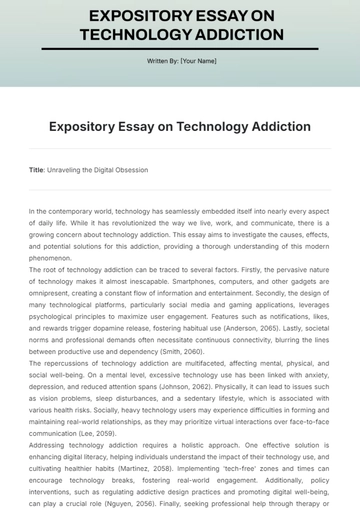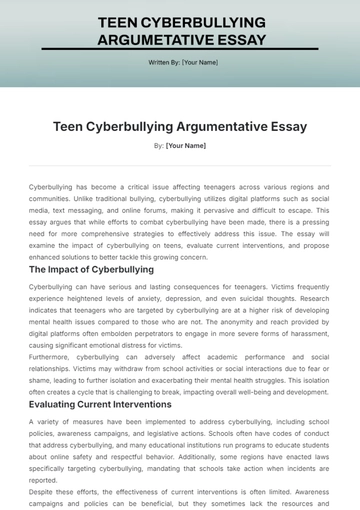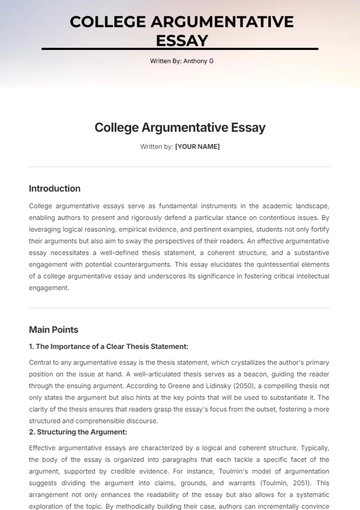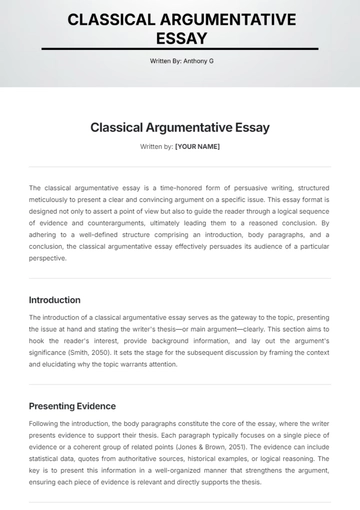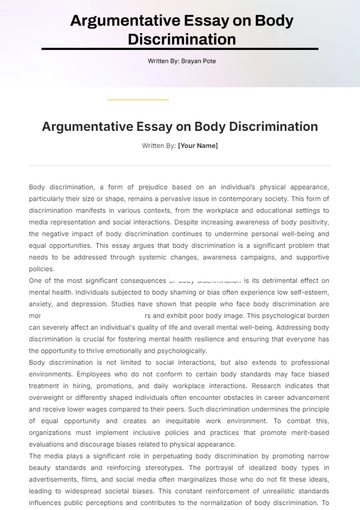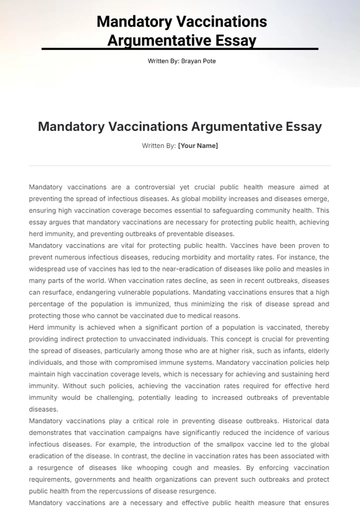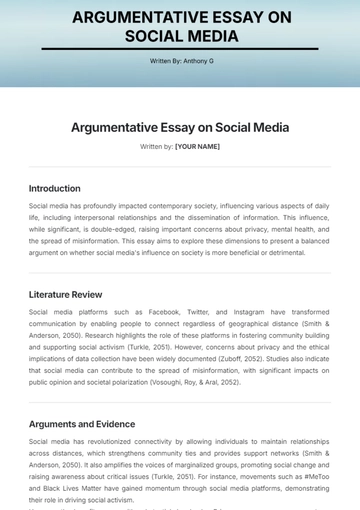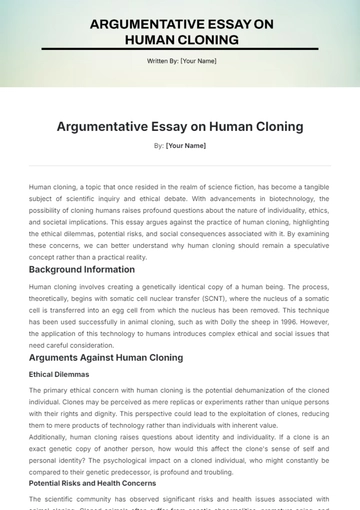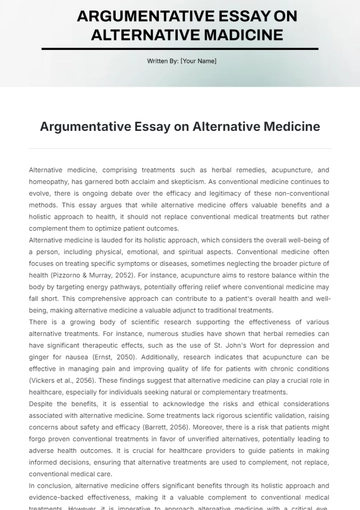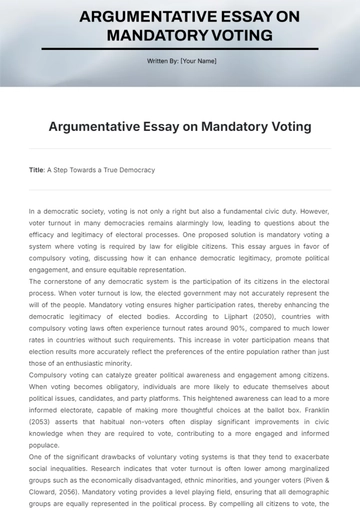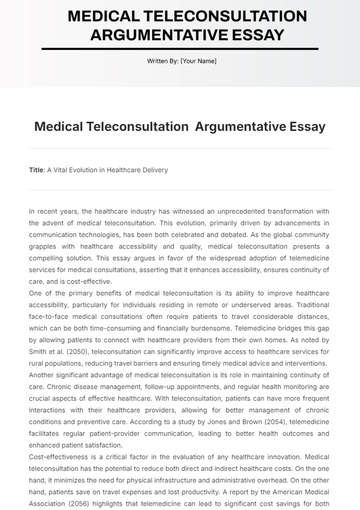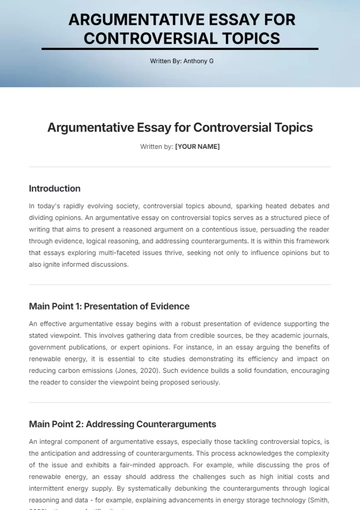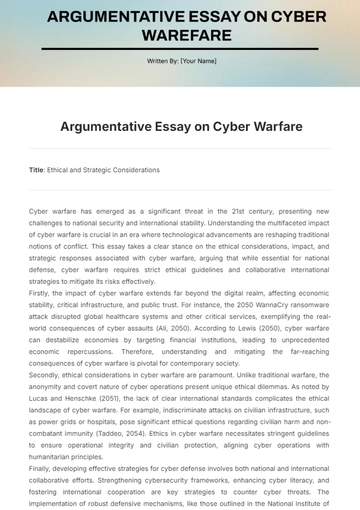Free Argumentative Essay on Police Reforms
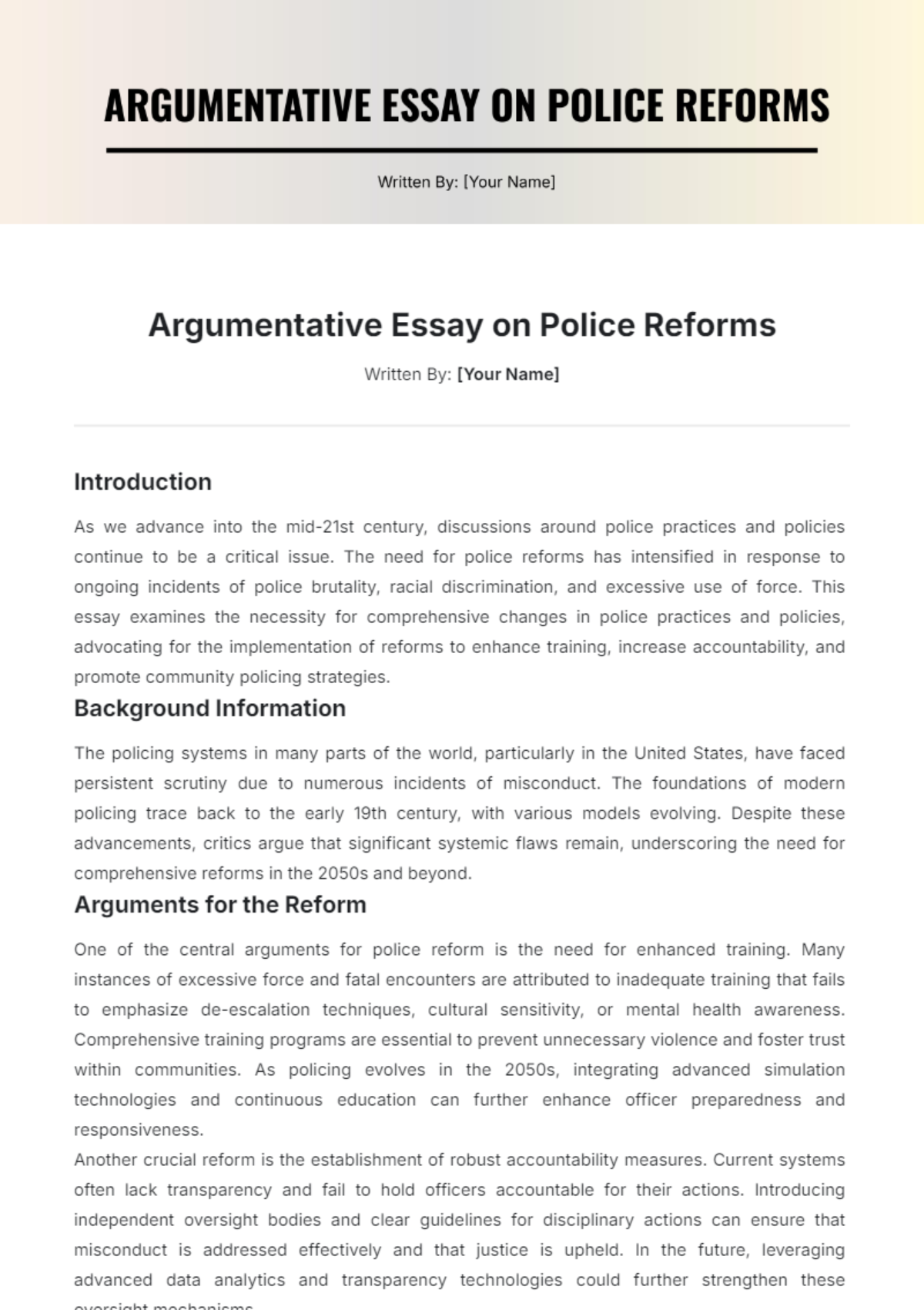
Written By: [Your Name]
Introduction
As we advance into the mid-21st century, discussions around police practices and policies continue to be a critical issue. The need for police reforms has intensified in response to ongoing incidents of police brutality, racial discrimination, and excessive use of force. This essay examines the necessity for comprehensive changes in police practices and policies, advocating for the implementation of reforms to enhance training, increase accountability, and promote community policing strategies.
Background Information
The policing systems in many parts of the world, particularly in the United States, have faced persistent scrutiny due to numerous incidents of misconduct. The foundations of modern policing trace back to the early 19th century, with various models evolving. Despite these advancements, critics argue that significant systemic flaws remain, underscoring the need for comprehensive reforms in the 2050s and beyond.
Arguments for the Reform
One of the central arguments for police reform is the need for enhanced training. Many instances of excessive force and fatal encounters are attributed to inadequate training that fails to emphasize de-escalation techniques, cultural sensitivity, or mental health awareness. Comprehensive training programs are essential to prevent unnecessary violence and foster trust within communities. As policing evolves in the 2050s, integrating advanced simulation technologies and continuous education can further enhance officer preparedness and responsiveness.
Another crucial reform is the establishment of robust accountability measures. Current systems often lack transparency and fail to hold officers accountable for their actions. Introducing independent oversight bodies and clear guidelines for disciplinary actions can ensure that misconduct is addressed effectively and that justice is upheld. In the future, leveraging advanced data analytics and transparency technologies could further strengthen these oversight mechanisms.
Additionally, community policing strategies have demonstrated success in building positive relationships between law enforcement and the communities they serve. This approach emphasizes collaboration, understanding, and mutual respect, which can reduce crime and enhance public trust. As we progress into the 2050s, integrating AI-driven community engagement platforms and social media monitoring could enhance the effectiveness of community policing efforts.
Arguments Against the Reform
Critics of police reforms argue that current practices are effective and that issues arise from a few problematic officers rather than systemic flaws. They worry that increased scrutiny and accountability could impair officers' ability to perform their duties effectively and diminish morale within the force. In the future, balancing reform with operational effectiveness will be crucial to addressing these concerns.
Another argument against reforms is the potential financial burden. Implementing new training programs, oversight bodies, and community policing initiatives will require substantial investment. Critics contend that these resources might be better allocated to crime prevention or social services. Future reform strategies must therefore consider cost-effective solutions and potential funding sources to mitigate these concerns.
Additionally, some argue that community policing strategies may not be suitable for all areas, particularly those with high crime rates. They believe that more traditional, authoritative approaches are necessary to maintain order. Future reforms will need to tailor strategies to the specific needs of different communities, ensuring that approaches are both effective and adaptable.
Evidence and Examples
Empirical evidence supports the need for police reforms. Studies indicate that advanced training programs can reduce incidents of force and improve decision-making (Sklansky, 2050). For instance, departments that have adopted Crisis Intervention Training (CIT) have reported significant declines in violent encounters with individuals experiencing mental health crises (Watson et al., 2050).
Moreover, research shows that accountability measures can yield positive results. The creation of independent oversight bodies has been linked to reductions in police misconduct and increased public trust (Walker, 2050). Cities like Seattle and Oakland, which have implemented such measures, have seen improvements in police-community relations (Goff et al., 2050).
Community policing strategies have also shown promise. Programs in cities like Camden, NJ, and Richmond, CA, where law enforcement agencies have embraced community collaboration, have experienced reductions in crime rates and enhanced cooperation (Weisburd et al., 2050).
Conclusion
In conclusion, while there are compelling arguments on both sides of the debate over police reforms, evidence suggests that comprehensive changes to training, accountability measures, and community policing strategies can produce positive outcomes. Implementing these reforms is crucial to addressing systemic issues in policing, improving public trust, and ensuring the safety and well-being of all community members. As society continues to evolve, our approaches to law enforcement must also adapt to meet the needs of the communities they serve.
Bibliography
Goff, P. A., Lloyd, T., Geller, A., Raphael, S., & Glaser, J. (2050). The Science of Justice: Race, Arrests, and Police Use of Force. Center for Policing Equity.
Sklaansky, D. A. (2050). The Persistent Pull of Police Professionalism. New Perspectives in Policing Bulletin. Washington, DC: U.S. Department of Justice, National Institute of Justice.
Walker, S. (2050). The New World of Police Accountability. SAGE Publications.
Watson, A. C., Compton, M. T., & Pope, L. G. (2050). Crisis Response Services for People with Mental Illnesses or Intellectual and Developmental Disabilities: A Review of the Literature on Police-Based and Other First Response Models. Vera Institute of Justice.
Weisburd, D., Telep, C. W., Hinkle, J. C., & Eck, J. E. (2050). Is Problem-Oriented Policing Effective in Reducing Crime and Disorder? Criminology & Public Policy, 9(1), 139-172.
- 100% Customizable, free editor
- Access 1 Million+ Templates, photo’s & graphics
- Download or share as a template
- Click and replace photos, graphics, text, backgrounds
- Resize, crop, AI write & more
- Access advanced editor
The Police Reforms Argumentative Essay Template from Template.net provides a comprehensive framework for crafting a compelling argument on policing changes. This editable template is customizable to suit your specific points and arguments. With the added benefit of being editable in our AI Editor Tool, you can easily tailor the essay to meet your needs and make a strong case for reform.

